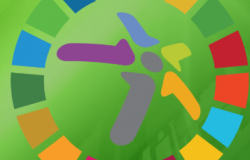WSIS 2019 Panel ‘ICTs in the University Environment’ (Part 1)

Two weeks ago Suay Ozkula and I led a delegation of eight students from the Global Leadership Initiative in the Social Sciences at the University of Sheffield to the 2019 World Summit on the Information Society (WSIS) in Geneva, Switzerland. The team developed and ran the ‘ICTs in the university environment’ session during the event.
The slides for the presentation can be found here and a link to a video recording of the session can be viewed on the WSIS site.
In this first of two blogs about the event, I will go through some of the key points from each presentation.
Our first speaker was Mike Pinney (M.Sc. Applied GIS, Urban Studies & Planning) who delivered a fascinating talk on his GIS project in the Gleadless area of Sheffield (starting at 00.43 in the webcast).

Mike showed us some great visualisations of his case study and argued that academics should develop assignments for their courses that had tangible impacts upon local communities. For example, students could use crime data to identify safe spaces, or remote sensing to help farmers analyse soil fertility within these areas. He made a compelling case for more creative modes of assessment in Higher Education that went beyond essays and exams. In the Q&A he called for WSIS to focus more on the threat posted by climate change in future Summits.
The second speaker was Tor Baskett (MA Digital Media & Society), who discussed the educational divide between Global North and South (starting at 06:17 in the webcast). She presented a critique of the term digital divide and talked about how digital skills (or lack thereof) could have a significant impact on the career trajectory of citizens in the developing world.

Crucially, this divide is not just one between Global North and South. Tor highlighted recent reports suggesting that as many as one third of UK students were deficient in digital skills as evidence that it was ‘holding back’ people in developed countries too. She finished her presentation by calling for schools to invest more resources in equipping students to excel in the Information Society. One example given was the use of Artificial Intelligence within Romanian schools to increase digital literacy amongst pupils.
Danny Kirby was our third panelist, who spoke about his student project on how networked publics on Twitter responded to UK Prime Minster Teresa May’s Brexit plan (beginning at 12.17 in the webcast). He reflected on the limitations of using digital methods such as Sentiment Analysis to explore complex political phenomena on social media.

In his study of hashtags such as #brexitshambles, Danny found several limitations to using these methods, such as their inability to detect sarcasm. He also found extensive evidence of bot activity in his research on how Brexit was being discursively framed on Twitter. He concluded by arguing in favour of greater ‘democratisation of social media research’ and warned that a new digital divide was emerging between those universities able to pay for social media data and those could not.
Our fourth speaker was Evelyn Baskaradas (MSc Data Science), who began by giving a personal account of her experiences using Virtual Learning Environments (VLEs) at the University of Sheffield, both as an undergraduate and postgraduate student (beginning at 18.38 on the webcast).

While analytics from VLEs could help improve learning and teaching in Higher Education Institutions (eg. identifying students who might need specific help), students viewed this use of their personal data as a violation of their privacy. Within Evelyn’s cohort, there has been much discussion about the ethical challenges posed by these ‘data driven’ approaches towards e-supported learning, as well as their potential benefits for staff and students within these institutions. She recommended that there should be greater scrutiny of how these analytics were used to inform Higher Education policy and practice.
The other three presentations will be summarised in WSIS 2019 panel ‘ICTs in the university environment’ (Part 2).
This first appeared on Paul's own blog. The GLI team's outputs can be found here.


